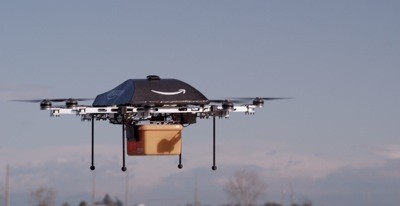The future of logistics and automation
That the future of transport could be influenced, if not defined by, automation is an undeniable reality.
Whether you’re looking at the limited testing of automated mining vehicles or Google’s keen interest in seeing robotic vehicles become commonplace throughout the world to reduce fatalities on the road (the only times a Google’s automated cars have been involved in accidents have been due to human error), automation and/or unmanned vehicles look set to take a more dominant role in the future.

In the world of logistics, the nature of vehicles that drive themselves or are controlled remotely are becoming a far more likely scenario every single day. In terms of logistics, you have Amazon looking into having drones deliver packages individuals had ordered online. Even Domino’s featured an unmanned drone deliver pizzas as part of a marketing campaign. But while that may not mean Domino’s will use drones just yet, it does open the doors to such possibilities.
Last month, official word spread that Rolls Royce is currently in the process of developing unmanned cargo ships. The technology would work with the ship being controlled remotely while the ship itself has absolutely zero individuals on board. One of the big points of discussion with the idea of unmanned vehicles, boats/ships, drones and planes is that such technology will be more cost effective, as well as more profitable.
By removing the need for allocating space for people, additional sections can be devoted to the storage of cargo / freight. With people absent from these vehicles, it also ensures greater safety whereby if anything goes wrong during transport, no lives will be needlessly lost.
Challenges
However, while automated and unmanned logistics could prove less costly while promoting greater safety, the issue here is law. As it currently stands, there aren’t many countries that have laws that comprehensively cover and permit the use of unmanned or automated vehicles. Google may have the support of a few select states in the US for its robotic car project, but requiring laws that permit for various forms of robotic vehicles is an entirely different battle.
Even if laws were permitted by one country, it wouldn’t mean other countries would follow suit. So when it comes to international shipments, such inconsistencies in laws across nations could create a logistical nightmare. In the end, if the emergence of remote, unmanned and completely autonomous logistics and transport were to succeed, then the world would need to be agreement over embracing and implementing laws to reflect such changes.